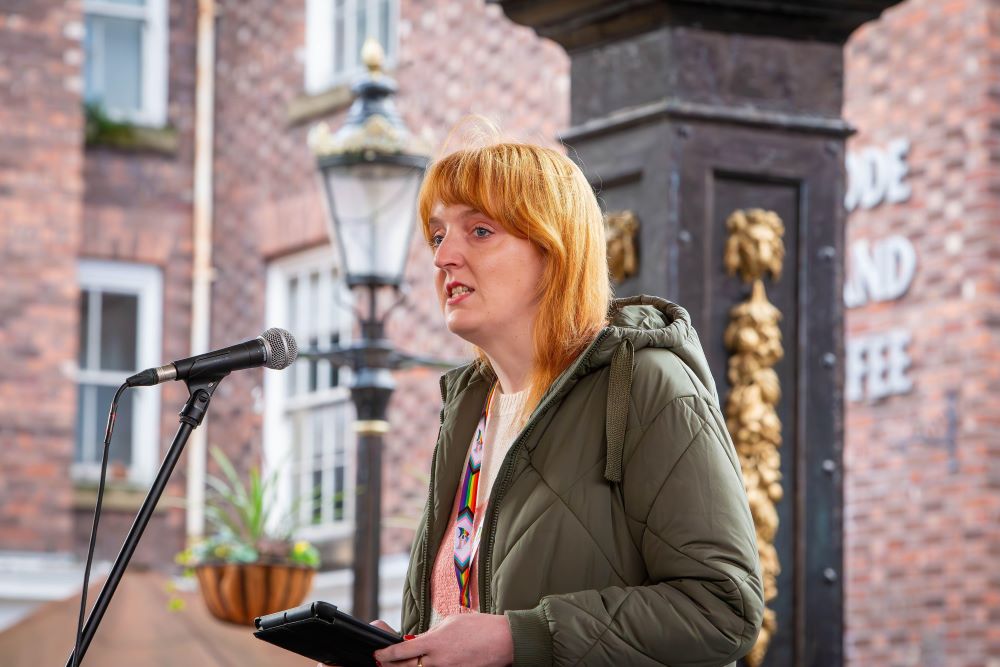The Budget Is A "Critical Moment" For Drug And Alcohol Rehab Services
4 min read
The UK's largest provider of drug and alcohol treatment services has described the Budget as a "critical moment" for the sector with any reduction in funding risking an "unravelling" of rehabilitation provision.
Last year, 5,448 drug poisoning deaths were registered, representing an 11 per cent increase rise from 2022 — the highest figure since records began in 1993. The drug posioning death rate has also almost doubled since 2012.
Change Grow Live, which supports recovery services across local authorities and prisons nationwide, receives its core funding through contracts as well as grant funding as part of government's National Drug Strategy.
As Chancellor Rachel Reeves prepares to deliver the Labour Government's first Budget today (Wednesday), the organisation has expressed concern that the latest funding cycle, due to end in spring 2025, has not yet been earmarked for renewal.
Executive Director at Change Grow Live, Vicki Markiewicz, said the sector was "waiting with baited breath" to learn whether Reeves had agreed to renew current funding levels, as any fall in financial support would have severe consequences for rehabilitation services.
She said the funding through the National Drug Strategy had been "really welcomed by the sector" because previously it had been "really running on a shoestring".
"Services were very, very stretched. There were very, very high case loads and not a dedicated workforce really struggling to meet the needs of everybody that was coming to us for help," Markiewicz told PoliticsHome.
"What this money has done is enabled us to have lower case loads, which helps people to really address the psychological impact of drugs...
"We've got more criminal justice specialists, more homelessness specialists, more people focused on harm reduction, more clinicians, more psychiatrists, more psychologists, more nurses."
She added: "If the money goes we've got to make some very, very difficult decisions about how we deliver the services to as many people as are already in treatment."
While Reeves and Prime Minister Keir Starmer have signalled that the NHS will receive significant additional funding in the Budget, they have both repeatedly warned that they will need to make "difficult decisions" to repair what they describe as a "£22bn black hole" left in the public finances by the previous Tory administration.
Markiewicz said if the Government reduces funding for drug and alcohol rehabilitation services, it would likely lead to more people using emergency services, putting greater pressure on the NHS as a result.
"From our perspective, it's a critical moment," she said.
"We're nearly four years into our new national ten year drug strategy, and it [the strategy] was really welcomed. It's been really impactful because there's been amazing intergovernmental workings across the Ministry of Justice, the, Department of Health and Social Care, and the Ministry for Housing, Communities and Local Government," said Markiewicz.
"Government departments have been working really well together which meant that our services are much able to meet people's needs on a much more holistic basis.
"If funding isn't continued, it's going to be a real unraveling of all that fantastic work that's gone on for the last four years and really was a long time coming."
 Labour MP Charlotte Nichols (Alamy)
Labour MP Charlotte Nichols (Alamy)
Charlotte Nichols, Labour MP for Warrington North, told PoliticsHome she wanted to see the funding continued and increased in the Budget, adding that public health chiefs in her area had written to her stressing the importance of the financial support.
"It's really important that the funding is maintained and that it is increased, at least in line with inflation," said Nichols.
"We've seen from the latest ONS statistics on drug related deaths, a really sharp increase, both in terms of opioid use, but most staggeringly in cocaine related deaths. We see a huge regional disparity in that."
Local public health chiefs have told Nichols there was not only an increased risk of harm among those struggling with addiction if the funding wasn't extended, but there would also be redundancies among staff working in the sector.
"Drug related issues creates harm to both the individuals affected, their families, and to the community from a lot of the knock on impacts of drug addiction, particularly in terms of crime that occurs as a result," said Nichols.
"Any reduction in that, or an increasing reliance on the voluntary sector or third sector, is capacity that we're losing in terms of trying to deal with the really varied reasons that people are experiencing problems with drug and alcohol addiction and the range of factors and other supportive measures that need to be put in place to help people on a path to recovery."
